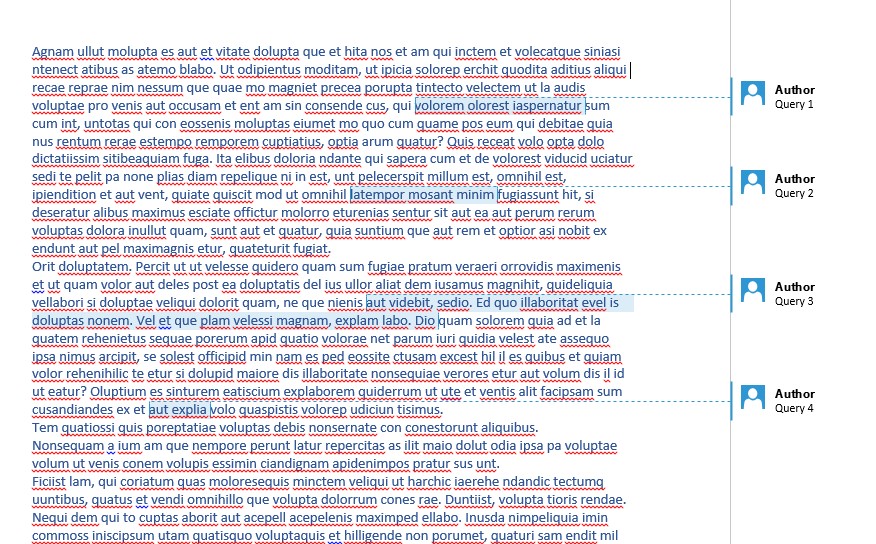Translation Agency Tips: #9 Researching & Dealing with Queries

Whether you’re translating, proofreading or transcribing, projects will inevitably throw up a few queries as you seek to gain a firm understanding of a source text. Most clients will appreciate the necessity of providing clarification on any ambiguities, and will strive to answer your questions as fully as possible. After all, it’s in their best interest to do so!
Unfortunately, there are also those out there who fail to recognise the importance of answering queries, and won’t offer insightful responses, or even worse, will not respond to your questions at all. For such clients, the best you can do is leave a note in your translation (if in Microsoft Word, the ‘Comment’ facility works well for this) and hope that someone picks up on the points you’ve raised. You can only do so much to help a client who doesn’t want to help themselves!
For more vigilant clients it is important to present your queries clearly, logically, and preferably all in one go. Creating a separate document of queries is a good way to share these with your client. Listing each query in the order in which it appears.

Where it appears in the source document, be sure to state clearly where the issue in question occurs within the document, and remember to write in full sentences. For example:
Presenting queries in this fashion will enable your client to clearly comprehend the issues you’re raising, and encourages them to get back to you in the same unambiguous manner.
Before raising any queries at all, it is always worth putting some time in to do a bit of research. I can’t count the number of times we’ve been sent a query which has been easily answered by a simple Google search. Of course we’re always happy to help with things you’re unsure of, but going straight to the client with a question without first doing a bit of legwork yourself can leave a negative impression. From our experience, when raising a query it is always good to suggest what you think may be the solution (when possible) as it demonstrates that you have put some thought into the issue before contacting the client.

Remember that the client will have to spend time investigating any queries you raise, which could have an impact on the deadline of the project. For projects with tight deadlines we often find it preferable to receive a complete translation with a suggested solution in the text, with any queries/issues denoted in the margin or at the end of the document. This way at least we can deliver a translation to the end client, and impetus is on them to get back to us on any queries raised.
I’ll conclude by sharing a quick story about a situation when a translator impressed us with the way he dealt with a query regarding the translation of an employment history document, issued by a recruitment agency for a prospective new employee of our client. The source text included several abbreviations which were used internally by that recruitment agency only, and thus the meaning was impenetrable to anyone else reading the document. The translator could’ve contacted us and requested the meaning of these abbreviations. We’d have then had to go back to our client, who would’ve had to contact their prospective employee, who would probably have had to go back to the issuer of the document. Instead, the translator noticed the telephone number of the recruitment agency who had issued the document, called them directly and was able to translate the abbreviations accurately, therefore avoiding a costly delay on the project.
While we don’t advocate contacting end clients directly, showing initiative and going the extra mile makes yourself stand out as a freelancer, and in turn enhances your professional reputation and will improve the relationship with your client!
Have we missed anything? Please let us know if you have anything to add in the comments section below!














